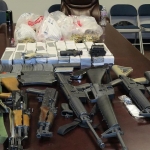CorpWatch Bribery Report Helps Spark Dutch Inquiry
In July 2006, CorpWatch exposed evidence that a Dutch shipbuilding company, selling military equipment to Chile, was offering bribes to officials there. CorpWatch's reporting is now fueling calls by anti-corruption activists and opposition politicians for a formal parliamentary investigation into the operations of the company, Rotterdamse Droogdok Maatschappij (RDM).
The RDM case may become the first test for the Netherlands' new anti-corruption legislation and for its will and ability to prosecute corporations for making foreign bribes.
The RDM bribery scandal dates back to 1998 when the company sold 202 Leopard tanks to the Chilean army. The Rotterdam-based company had purchased the tanks as scrap metal from the Dutch Department of Defense and rebuilt them. It then paid bribes to Chilean army officials facilitating the sale.
In early August this year, a high court in Santiago de Chile sentenced army General Luis Lobos and Brigadier General Gustavo La Torre to prison for accepting bribes of more than half a million dollars.
Joep van den Nieuwenhuyzen, the Dutch businessman, and officials of his company-who offered and facilitated the bribes-have never been prosecuted in relation to this case. The Dutch Public Prosecutor's Office told CorpWatch that at the time of RDM's bribes, the Netherlands had no laws against offering bribes to officials overseas. Legislation to make these practices illegal was introduced in 2001. Further muddying the waters, RDM went bankrupt in 2006, and Joep van den Nieuwenhuyzen, its owner, was jailed for fraud. He was released two years ago.
The current Dutch government investigation will delve further into the extent and mechanics of the bribery scheme, and interview key politicians active at the time. A Dutch parliamentary team is following up on the case in the Netherlands and in Chile. Key targets of the investigation include Edmundo Perez Yoma, Chile's former minister of defense and currently its interior minister, along with his then deputy Mario Fernandez, now member of the Constitutional Court. Both are suspected of facilitating the bribery. Chile has announced similar investigations.
One Dutch official at the time of the tank sales, then Minister of Defense Joris Voorhoeve, joined the call for parliament to undertake a broad investigation into RDM's bribes. He defended his own role. While Voorhoeve acknowledges that he issued an export license for the 202 Dutch Leopard tanks, he maintains he is appalled and shocked by the allegations of bribery. "The Netherlands government would never agree to pay bribes to get a deal closed," he said, "nor participate in any other form of corruption." The sales were justified, he said, because when they took place in 1998, Chile had become a democracy and General Augusto Pinochet, who had ruled from 1973 to 1990, was no longer president. But in fact, the former dictator still wielded considerable influence as senator for life and commander-in-chief of the armed forces, positions he retained until his death in 2006.
The parliamentary investigation, while welcomed by many, is late in coming. For years politicians ignored requests by the Netherlands Socialist Party for a formal investigation-again, sparked in part by CorpWatch's reporting on the money RDM paid to the former dictator and his entourage.
According to a Swiss newspaper, van den Nieuwenhuyzen, currently a Swiss resident, said that he was not aware that the company he once owned was under investigation for payments to Chilean army officials.
But former RDM workers and associates charged that the company paid millions to Chilean colonels and brigadier generals through a third party, with $1.6 million going to a private consultant to the late general Pinochet. RDM said the $1.6 million was a donation to the Pinochet Foundation, a Santiago-based organization that promotes the general's legacy.
Chilean and cooperating Dutch private investigators that examined the Pinochet's overseas bank accounts have found that the dictator had stashed almost $28 million overseas, mainly in European bank accounts. Dutch investigators will look for links between that money, the two recently jailed Chilean army officers, and Pinochet.
The spokesperson of the Dutch Socialist Party in Rotterdam told CorpWatch that there have been no successful prosecutions of corporations in the Netherlands for foreign bribes, because it is extremely difficult to secure evidence in foreign countries. Of the scores of cases under consideration, none have yet reached the courts. If RDM is charged, it will be the first time Dutch officials or businesspeople are prosecuted under the new regulations.
- 19 Weapons Makers
- 104 Globalization
- 106 Money & Politics
- 185 Corruption



